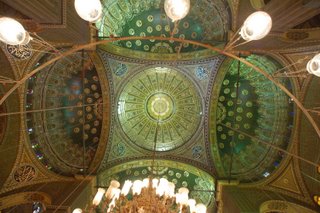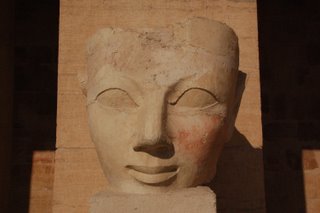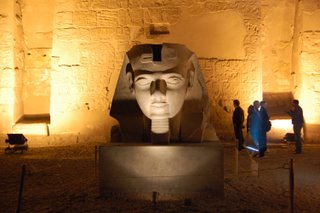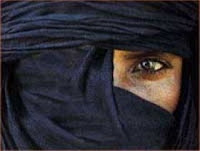The Intellectual Insurgent
in·sur·gent (n-sûrjnt) adj. One who acts contrary to the established leadership (as of a political party, union, or corporation) or its decisions and policies
Wednesday, February 21, 2007
Thursday, February 15, 2007
The Commander Who Has Never Been To Battle

There was a time when leaders became leaders because of their heroics, their prowess on the battlefield. The most respected leaders were those who fought alongside their troops, suffered the same defeats and overcame the same obstacles.
In these times however, choosing leaders based upon their ability to, er, lead, seems foreign. So long as a monkey gets a legacy degree from Harvard, has the correct ancestral lineage and is willing to do the bidding of the business interests, he can become president of the United States. And has.
Our Chimperor outdid himself yesterday, illustrating the depths of his ignorance, stupidity and overall refusal to grasp reality. Asked by an ABC reporter whether he thought Iraq was roiled by civil war, Bush offered this gem that sums up his entire presidency -
It's hard for me living in this beautiful White House to give you an assessment, a first hand assessment. I haven't been there. You have, I haven't. But I do talk to people who are and people whose judgment I trust and they would not qualify it as that. There are others who think it is.
A so-called commander-in-chief who has not seen the battlefield; a so-called commander-in-chief who does not use his own brain, but relies on the judgment of others; a so-called commander-in-chief who cannot provide a first hand assessment of those things for which he is asking his people to sacrifice their lives, security and money.
Leaders now are chosen not because of their actions, but by the appeal of their hollow, meaningless words; not by their ability to lead but by their ability to follow others; not by their ability to understand the world around them, but by their stubborn refusal to learn. History tells us that these are the trademark characteristics of every boy king who singlehandedly destroyed the empire he inherited. And we are seeing it yet again in our commander who has never been to battle.
Tuesday, February 13, 2007
Monday, February 12, 2007
Friday, February 09, 2007
Tuesday, February 06, 2007
The $100 Breakfast
Emperor Bush's announcement yesterday of new and destructive ways to devalue the dollar brings me to another topic from my vacation - the value of the dollar. Various events in Egypt affirmed that long gone are the days when dollar was king; when the rest of the world eagerly traded the paper note of the American treasury for a product of their labors.
Many people in Egypt do not trust their banks so, as was once the practice here in America, they keep their money in their homes. In a box here, a purse hidden away there and perhaps in a mattress too. My aunt with whom we stayed for the the first two days of the trip is my usual money changer. Dollars are worth more than Egyptian pounds so my visit used to mean that she can unload some of her worthless pounds and hold what really has value. But not this time.
Anxious to get my shopping started on our first day, I told my aunt I would exchange money with her instead of going to a currency exchange if she wanted dollars. Perhaps my surprise was born of a certainty of the supremacy of all things American, but she refused. She said she would give me a loan of pounds until we found a bank but, given the decline in the value of the dollar, she would prefer Euros. Foreigners are paying way more attention to the dollar's fortunes than Americans are.
Thank you Emperor Bush.
Fast forward two weeks and we arrive in Safaga on the Red Sea. The Red Sea resorts are their own worlds, distinct and apart from the rest of Egypt. They are where you will see topless sunbathers on the same beach as women covered head to toe. The contrasts are strange, but always fascinating.
When I got SCUBA certified many moons ago in Egypt, diving was denominated in dollars. Indeed, most of the Red Sea businesses preferred (and often demanded) payment in dollars. All foreigners converted their currencies to dollars to fund their dive excursions, trips to the desert, big dinners and decadent nights of drinking.
Imagine our surprise then when we went to the dive center to book our dives and were quoted payment in Euros. We looked around the dive shop and all the price tags were in Euros. 20 Euros for a sweatshirt embroidered with the logo of the shop, 10 Euros for the underwater video, 30 Euros for a personalized dive video. Each of us did the rough math in our heads and we were traumatized. 65 Euros per person (plus equipment rental) does not sound so bad until the calculator in your head hits almost $100. And this was Safaga. Sharm El Sheikh is orders of magnitude more touristy and, thus, more expensive as turned out to be the case with our dives that cost 79 Euros per person + equipment rental. There was a time when $100 would get you a day on a boat, two dives and equipment rental.
Thank you Emperor Bush.
Our orientation to the world of the Euro in Sharm eased the transition to the weekend in Paris, where $500 at the airport got me 329 Euros. We all knew that we would have to tighten the belt and keep it cheap for the weekend.
After we dumped our bags at the hotel, we went in search of breakfast and stumbled across a cute cafe that seemed to be reasonable. I ordered the 8 Euro breakfast and everyone else got their yummies. The total for our food was 49 Euros. Add to that the 22% city tax (because we were foolish enough to go into a more touristy place that charged tax) and the total was 67 Euros. We stared at each other completely dumbfounded at the realization that we had just spent $100 on breakfast. And all I got was a croissant, eggs and some hot chocolate. For the remainder of the weekend, we ate well at dinner, but bought breakfast and dinner from the corner carts that sell paninis and crepes for 2 Euros.
I checked the price of gold yesterday. It was at $656 per troy ounce.
Thank you Emperor Bush.
Monday, February 05, 2007
The Citadel of Salah El-Din
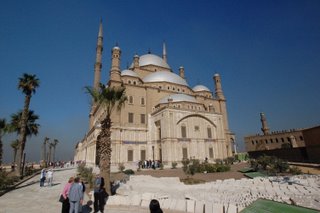
Salah El-Din, known in the West as Saladdin, built the Citadel fortress in 1176 to protect against the invading crusaders. Perched atop the Mukattam Hills, the citadel offers a bird's eye view of Cairo.
The grand courtyard
The ceiling of the Mohamed Ali Mosque within the citadel.
 If you saw the movie of Malcolm X, you saw this mosque where he prayed.
If you saw the movie of Malcolm X, you saw this mosque where he prayed.


















